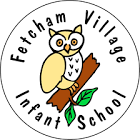Mathematics
Our curriculum is fully inclusive for all, which develops children’s knowledge and understanding of mathematical concepts whilst enabling them to apply their skills effectively. The children enjoy and are curious about Maths through shared learning and meaningful contexts across the curriculum. Using their learning environment, the children are given a variety of opportunities to develop their knowledge using concrete, pictorial and abstract learning.
Children reflect on the suitability of strategies used and are guided through any misconceptions. They are given opportunities to change, adapt, correct or extend within a safe learning culture.
Mathematics aims to ensure children:
-
Know and can apply a range of mathematical skills and become fluent in the fundamentals of mathematics.
-
Embrace mathematical challenges through a mastery approach.
-
Be able to reason mathematically and solve problems by the application of their mathematical understanding.
-
Have opportunities to apply learnt mathematical skills and develop problem-solving abilities across the whole curriculum.
-
Develop an enthusiastic and creative attitude towards mathematics that will stay with them throughout their lives and help them to apply their mathematical skills effectively in everyday life situations.
-
Can think critically using concrete, pictorial or abstract approaches and communicate their understanding clearly.
We will achieve our aims by:
-
Giving staff support and clear guidance on the coverage of the Mathematics National Curriculum, following a Mastery approach and White Rose Plans.
-
Setting clear expectations for children and staff as to what is to be taught and what needs to be learnt.
-
Providing a systematic Calculation Policy.
-
Teaching problem-solving skills and reasoning skills that provide mathematical opportunities across the whole curriculum.
-
Ensuring planning is based on a thorough understanding of children’s needs, based upon effective and rigorous assessment for learning and fluency tracking, combined with high expectations and ambition for all children to achieve.
-
Implementing intervention strategies for those children not making expected progress.
-
Ensuring the children have access to a range of concrete resources in every lesson.
-
Teaching mathematical vocabulary to enable children to talk about their learning in order to demonstrate or deepen their understanding.
We assess the success of our teaching by:
- Learning walks and teacher discussions ensure that there is a consistent approach to teaching maths throughout the school.
-
Progression will be seen through each year group.
-
Teachers use summative assessment to document children's progress and to adapt lessons to ensure that they develop confidence and competence in all areas of maths.
-
End of block assessments are used to assess children’s understanding at the end of each strand of learning and to help inform teacher assessment.
-
Children are able to choose appropriate resources and strategies for solving problems and calculations.
-
Children are able to talk about their problem-solving and reasoning using mathematical vocabulary and apply maths to everyday life.
__________________________________________________________________
Please see the following documents, guidance and advice for further information regarding how we teach Maths.
-
Maths Curriculum Map - a breakdown of what knowledge and skills are taught and exactly when, by each year group and half term (download below)
-
Maths Calculation Policy - a guide, with further information on how we teach addition, subtraction, multiplication and division (download below)
Useful Websites
White Rose - Home learning. Useful videos and activities to supplement what we are teaching in school) https://whiteroseeducation.com/parent-pupil-resources/maths/home-learning
BBC Teach - A range of fun, online Maths learning activities for all children to access https://www.bbc.co.uk/teach/school-radio/articles/zv2992p
BBC Numberblocks - aligned with our White Rose scheme of work https://www.bbc.co.uk/iplayer/episodes/b08bzfnh/numberblocks
NRICH - a range of Maths resources for all children to access https://nrich.maths.org/maths-home-number
Maths Zone - lots of fun activities for children to develop their understanding of Maths https://mathszone.co.uk/
Topmarks - more Maths games for children to play https://www.topmarks.co.uk/




